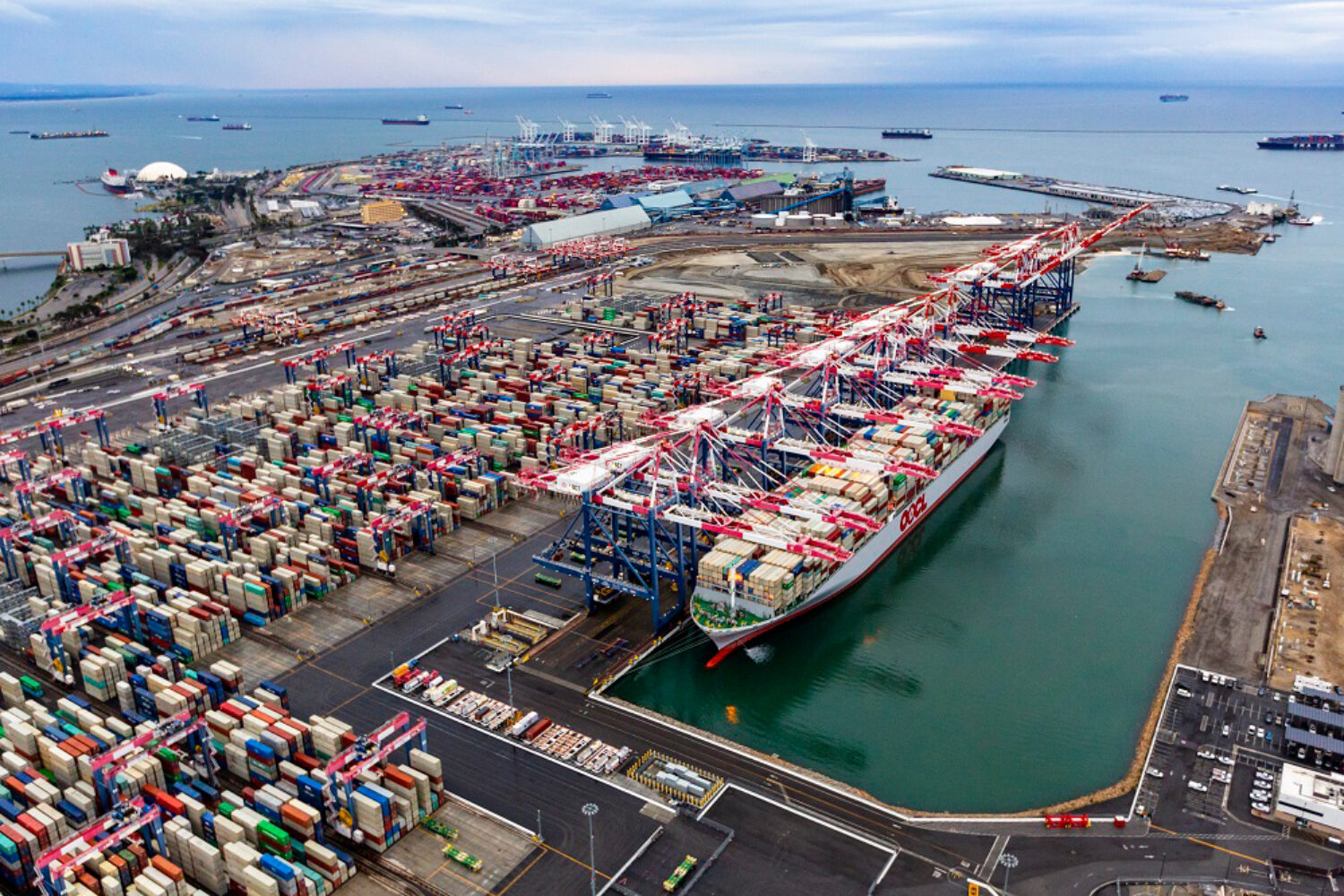The port of Long Beach in California, one of America’s most important transshipment points, recorded enormous freight volumes in April.
However, the high is expected to be followed by a sharp decline in May. This is due to tariffs and counter-tariffs, which have had a significant impact on trade with China.
In April, 867,493 TEU were handled at the terminals in Long Beach – an increase of 15.6% compared to the same month last year. The port even beat its previous record from April 2022 by 5.7%. Imports rose by 15.1% to 419,828 TEU, while exports fell by 4.5% to 93,842 TEU. Handling of empty containers in the port rose by 23% to 353,824 TEU. However, the tense trade situation on the global market will make itself felt in May: The port authority is expecting losses in the double-digit range.
Long Beach expects decline of over 10%
“After handling the largest containerized cargo of any U.S. port in the first quarter of 2025, we now expect imports to drop by more than 10% in May – and the impact will be felt beyond the docks,” said Mario Cordero, CEO of the Port of Long Beach. “Soon, consumers could find fewer choices and higher prices on the shelves, and the labor market could be impacted as uncertainty continues.”
“Even though the largest tariffs have been suspended, after 11 months of uninterrupted cargo growth, we should brace ourselves for the impact of tariffs,” said Bonnie Lowenthal, president of the Port Commission. “As we observe these dynamic changes in trade, the Port of Long Beach will continue to invest in rail and terminal improvements that will allow us to move cargo efficiently, safely and sustainably.”
So far this year, the port has handled approximately 3.4 million TEUs and continues to grow. Compared to the same period last year, throughput is 23.6% higher. Long Beach is the largest container port in the USA after the neighboring port of Los Angeles and is an important hub for transpacific trade in particular. The tariff dispute that has recently dominated relations between the Trump administration and China is therefore directly affecting the port.













